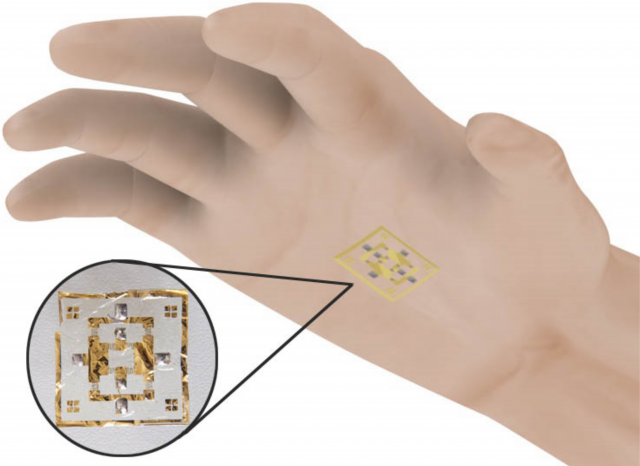Electronic skin for virtual reality

Moving through digital worlds as if by magic
Soon, an ultra-thin magnetic sensor stuck to the skin will be enough to control virtual and real objects
Most virtual reality systems rely on optical sensors that transfer, say, hand movements into the virtual world. But common VR gloves are often too bulky for carrying out precise movements. An interdisciplinary project involving physicists from the Helmholtz Centre in Dresden, the IFW Dresden and the University of Linz has now succeeded in developing a thin, electronic magnetic sensor that is stuck directly onto the skin. This ‘electronic skin’ makes it possible to remotely control physical and virtual objects. The magnetic sensor creates an even closer connection between the virtual and real worlds and opens up new possibilities for use beyond online gaming, such as in medicine or the security industry.
Ausgezeichnete Orte 2018
Helmholtz-Zentrum Dresden-Rossendorf
Bautzner Landstraße 400
01328 Dresden
Sachsen

